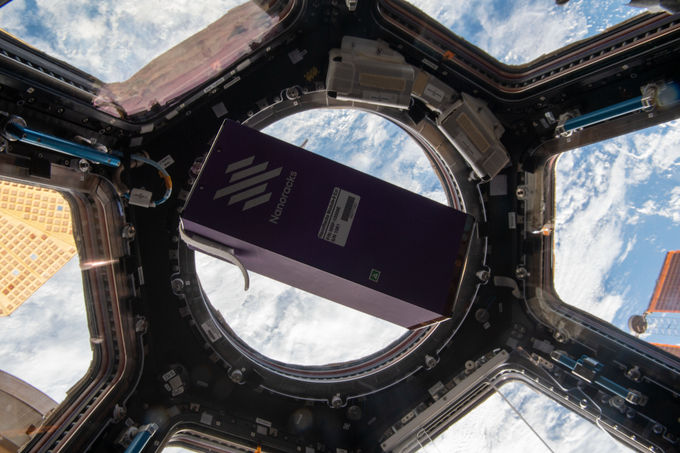May 21, 2025 | 04:34 GMT +7
May 21, 2025 | 04:34 GMT +7
Hotline: 0913.378.918
May 21, 2025 | 04:34 GMT +7
Hotline: 0913.378.918

Seeds from the IAEA and FAO laboratories were sent to space on November 7, 2022.
The Food and Agriculture Organization of the United Nations (FAO) and the International Atomic Energy Agency (IAEA) held an event in Vienna today to mark the imminent return to Earth of seeds that were sent into space four months ago.
The ground-breaking experiment aims to develop new crops that can adapt to climate change and help boost global food security. With the world's population estimated to reach almost 10 billion by 2050, there's a clear need for innovative solutions through science and technology aimed at producing more food, as well as crops that are more resilient and farming methods that are more sustainable.
Seeds from the IAEA and FAO laboratories belonging to the Arabidopsis and Sorghum varieties travelled in an uncrewed cargo shuttle from NASA's Wallops Flight Facility to space on November 7, 2022. While in space, they were exposed to the prevailing conditions — a complex mixture of cosmic radiation, microgravity and extreme temperatures — inside and outside the International Space Station (ISS).
Upon their return, which is expected to happen in early April, scientists at the Joint FAO/IAEA Centre of Nuclear Techniques in Food and Agriculture plan to grow the seeds and screen them for useful traits to better understand space-induced mutations and identify new varieties.
The meeting in Vienna, which was designed to inform students, partners and the public about space science and nuclear techniques in plant breeding, saw opening statements from FAO Director-General QU Dongyu and IAEA Director-General Rafael Mariano Grossi, as well as interventions from NASA Astronaut Kayla Barron, who discussed her experience working and carrying out experiments at the ISS.
"I am very proud of our partnership with IAEA, bearing fruits both on Earth for years, and now with seeds that travelled through space," the FAO Director-General told the gathering in Vienna. "I am in awe of the resilience of nature, and excited by the endless benefits that space exploration can bring to transform our agrifood systems to be more efficient, more inclusive, more resilient and more sustainable across the globe," said Qu, who is a trained plant breeder.
"This is science that could have a real impact on people’s lives in the not-too-distant future, by helping us grow stronger crops and feed more people," the IAEA Director General said. "IAEA and FAO scientists may have already been mutating seeds for 60 years and creating thousands of stronger crops for the world to use, but this is the first time we have experimented with such an exciting field as astrobiology,” said Grossi.
Cosmic Experiment
While similar experiments have been carried out since 1946, this is the first time that the IAEA and FAO are conducting genomic and biological analyses on seeds sent to space in around 60 years of experience in inducing plant mutations.
The seeds that traveled to space belong to two plant species: Arabidopsis, a type of cress that has been studied extensively by plant botanists and geneticists; and Sorghum, which belongs to the family of millets and is a drought- and heat-tolerant grain grown in many developing countries for food.
Once grown, a series of analyses will help understand whether cosmic radiation and harsh space conditions can lead to crops becoming more resilient in the face of increasingly difficult growing conditions on Earth.
(FAO.org)

(VAN) Attempts to bring down the price of the Japanese staple have had little effect amid a cost-of-living crisis.

(VAN) Fourth most important food crop in peril as Latin America and Caribbean suffer from slow-onset climate disaster.

(VAN) Shifting market dynamics and the noise around new legislation has propelled Trouw Nutrition’s research around early life nutrition in poultry. Today, it continues to be a key area of research.

(VAN) India is concerned about its food security and the livelihoods of its farmers if more US food imports are allowed.

(VAN) FAO's Director-General emphasises the need to work together to transform agrifood systems.

(VAN) Europe is facing its worst outbreak of foot-and-mouth since the start of the century.

(VAN) The central authorities, in early April, released a 10-year plan for rural vitalization.